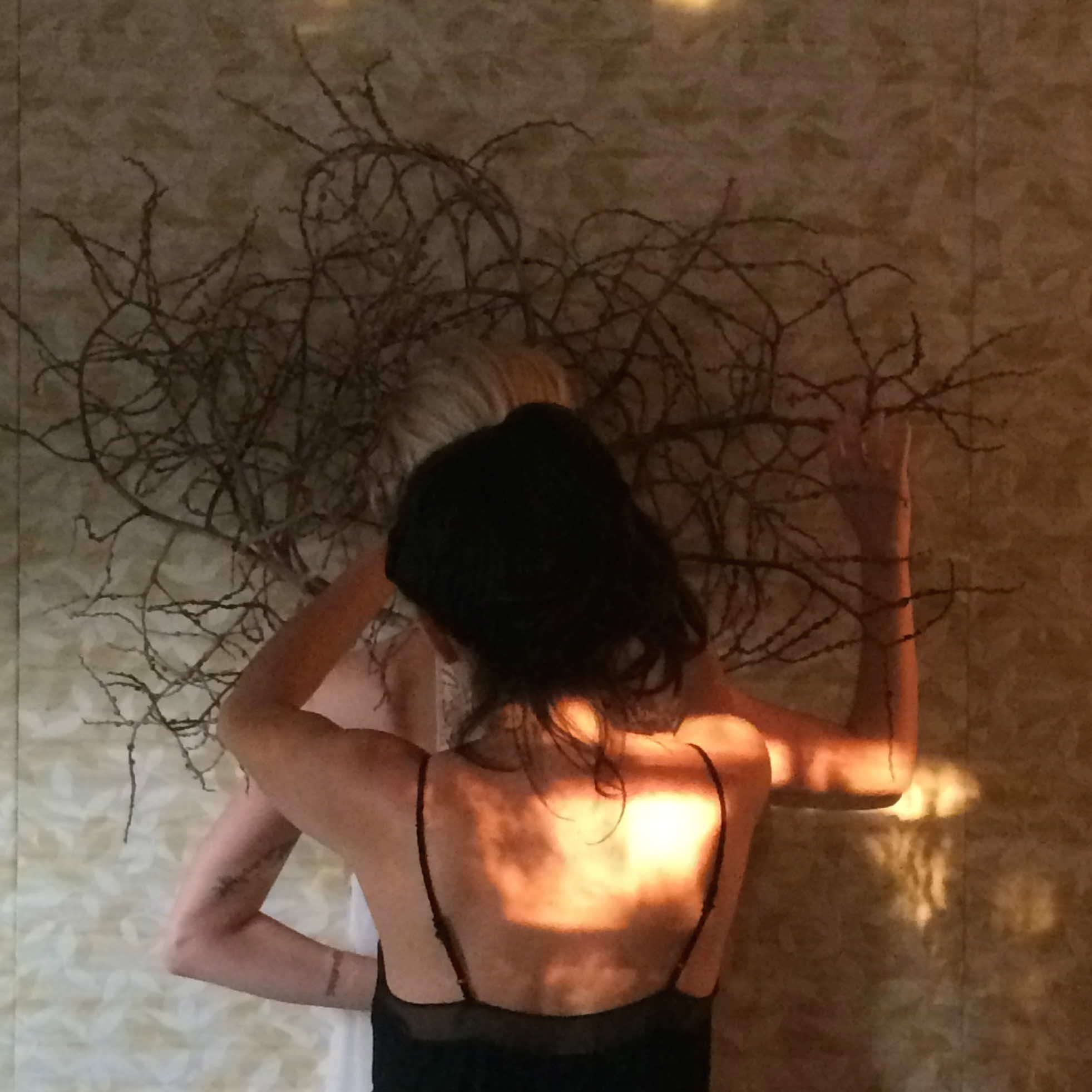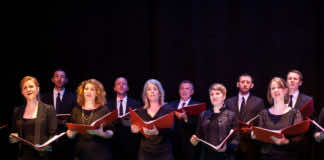 Miami’s film scene is not only booming with talented filmmakers, but it is also among the more diverse platforms for filmmakers due to an abundance of audiences. In the upcoming iteration of its Knight Foundation sponsored series “Speaking In Cinema,” Miami cinephiles will be getting a chance to hear up-close and in-depth conversations with three Miami-based independent filmmakers who have each crafted an important niche in different genres. Miami filmmakers Carla Forte (Miami Filmmaker Carla Forte on shooting hundreds of dogs in action and her impromptu poem on inspiration), Jillian Mayer (Jillian Mayer on inspiration from the medium of film and upcoming projects, from a talk show about pets to Kaiju), and Monica Peña will be featured in Oct. 22’s “Speaking in Cinema” presented and produced by the Miami Beach Cinematheque. Filmmaker Magazine Editor in Chief Scott Macaulay will be moderating the conversation, where each filmmaker will show highlights of their work.
Miami’s film scene is not only booming with talented filmmakers, but it is also among the more diverse platforms for filmmakers due to an abundance of audiences. In the upcoming iteration of its Knight Foundation sponsored series “Speaking In Cinema,” Miami cinephiles will be getting a chance to hear up-close and in-depth conversations with three Miami-based independent filmmakers who have each crafted an important niche in different genres. Miami filmmakers Carla Forte (Miami Filmmaker Carla Forte on shooting hundreds of dogs in action and her impromptu poem on inspiration), Jillian Mayer (Jillian Mayer on inspiration from the medium of film and upcoming projects, from a talk show about pets to Kaiju), and Monica Peña will be featured in Oct. 22’s “Speaking in Cinema” presented and produced by the Miami Beach Cinematheque. Filmmaker Magazine Editor in Chief Scott Macaulay will be moderating the conversation, where each filmmaker will show highlights of their work.
I recently had a chance to talk to Peña about her filmmaking philosophy and her sources of inspiration in storytelling. We sat outdoors at the Vagabond Hotel, a fitting place since it is old and new Miami at once, evoking some the themes in Peña’s filmmaking, or as she puts it “Miami is an endlessly interesting place.” Peña’s opera prima, Ectotherms is a personal favorite, an artistic work with a definite point of view that offers complex storytelling about place, growing up and coming of age. The critical look at life in the tropics is coupled with a documentary filmmaking style and a use of stark music that enhances on-screen action, but what makes this film so great is Peña’s authenticity and uncompromising standpoint. The film was a personal favorite at last year’s Miami International Film Festival because it said so much with seemingly very little, and the multi-layered storytelling allowed spectators plenty of room to understand the work in personal ways.
Peña’s upcoming work is titled Hearts of Palm and promises to continue in the vein of Ectotherms with a narrative style that defies traditional storytelling. “It’s hard to describe or summarize in words,” she tells me of her upcoming film. “The seed of the film was an exploration of feminine and masculine parts of myself.” Although the film is loosely about a relationship, the sources of inspiration included literature, music, works of art, the Miami landscape and the disjointed nature of the self. Indeed, the film form is lose and demands of the audience to bring their own awareness to the story, unlike traditional storytelling where the film feeds the audience a clear line of thinking. That tradition could not be further from Peña’s approach. “The story is mostly told through vignettes that convey moments,” she continues. “A lot of it is told through music. There is very little dialogue and images are very surreal.” The work will lend itself to a unique conversation about film-making. From what I have had the chance to see in Peña’s work and hear about her process, the boundaries of film seem to disappear, and something that you haven’t seen before is created – an experiential sort of imagery.
Collaboration is key to Peña’s directorial style. Her creative process for Hearts of Palm included creating a core document that included the vision for the film, which she describes as “a story about a relationship that is decomposing, that took place in this house that is decomposing with supernatural undercurrents throughout.”  Once the vision was shared and agreed upon by the filmmaking team, the story itself took shape and went in different directions in an organic way with input from the rest of the team. For Hearts of Palm, Peña has again joined forces with sound producer Joel C. Hernandez, who also collaborated on Ectotherms and provided sounds that are part of the narrative. During the collaborative process, production designer Lucila Garcia de Onrubia came up with the visuals and the feel of the vision for Hearts of Palm, bringing the tropical landscape indoors in a conceptual way. She credits cinematographer Jorge Rubiera and actor/original score composer Brad Lovett as contributors, for not only understanding her documentary-style of film-making but also helping bring her vision to life.
Once the vision was shared and agreed upon by the filmmaking team, the story itself took shape and went in different directions in an organic way with input from the rest of the team. For Hearts of Palm, Peña has again joined forces with sound producer Joel C. Hernandez, who also collaborated on Ectotherms and provided sounds that are part of the narrative. During the collaborative process, production designer Lucila Garcia de Onrubia came up with the visuals and the feel of the vision for Hearts of Palm, bringing the tropical landscape indoors in a conceptual way. She credits cinematographer Jorge Rubiera and actor/original score composer Brad Lovett as contributors, for not only understanding her documentary-style of film-making but also helping bring her vision to life.
As this snippet of a long conversation shows, filmmaker Peña is excited to talk about her approach and share her personal philosophy on surreal filmmaking. “If you set your idea in motion, a movie starts to show you what it wants to be … it’s a matter of tuning in from that point on.” Indeed, Ectotherms feels organic, a journey that takes you out to another world and within into yourself — if you let it. Peña’s artistic visualizations on film have a marker that is hard to pinpoint. She tells me she is excited about discussing her own work alongside such a diverse slate of Miami’s filmmakers. The event goes to show that Miami’s film community encompasses a myriad voices. Although the event focuses on women filmmakers, it should be noted that the relevancy of their work stands on its own. However, having a platform to showcase it remains critical. “I feel like it’s important to create a place for women to speak … carving out spaces for women is important,” says Peña of the upcoming Speaking in Cinema.
In addition to Peña’s voice, we will have the pleasure to hear from Carla Forte, who brings a unique perspective to her filmmaking with a style that consciously raises social awareness and leaves audiences to question big issues such as homelessness, identity in a foreign land and even animal rights. Her approach is also informed by her training as a dancer, resulting in a multidisciplinary approach that brings out interesting avenues in her work that cannot be neatly encapsulated. Finally, Jillian Mayer, of Borscht fame, plays with the alternative realities that we create for ourselves and others on the web. Her projects are playful and DIY at first glance but charged with awareness of the pitfalls and disinformation in the digital world. For Mayer, the construction of culture in the Internet is another form of discourse that may be changing the way identity is constructed and understood.
The Miami Beach Cineamtheque begins showing the films by these local filmmakers starting this Friday, Oct. 16. For a detailed schedule, follow this link. It culminates in a discussion with the filmmakers, also including directors Carla Forte (read her profile here), Jillian Mayer (read her profile here) and Filmmaker Magazine Editor in Chief Scott Macaulay. This profile series continues tomorrow with a piece on Peña.
You can also read more about these filmmakers and their retrospective in an article in the Miami New Times by jumping over to the alternative weekly’s art and culture blog through the image below:











[…] on shooting hundreds of dogs in action and her impromptu poem on inspiration) and Monica Peña (Storytelling through collaboration – Director Monica Peña discusses filmmaking and upcoming Speak…). “In 2012, Jillian Mayer and Lucas Leyva were two of the most inventive film artists around, and […]